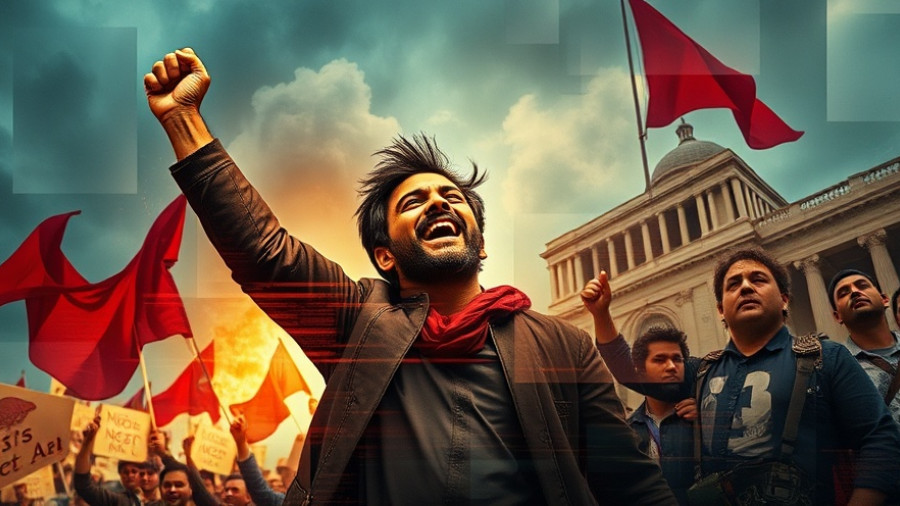
Examining the Rise of Zoran Mamdani: What It Means for New York City
In the wake of the electoral success of Zoran Mamdani, who is poised to become New York City’s first Muslim mayor, various perspectives have emerged regarding his political ideology and its implications for the city. His rise has generated both hope and concern among different factions of the populace. Some see it as a sign of progress towards inclusivity and representation, while others view it as a potential warning bell for the future of the city. This article seeks to explore these contrasting views, offering insights into what this change might mean for New York and beyond.
In 'Zohran Mamdani Is More Dangerous Than You Think,' critical elements surrounding the rise of a Muslim mayor in New York City prompt us to reflect on the implications of this landmark event.
A New Symbol of Representation
Mamdani’s election comes at a time when the Muslim population in America is increasingly vocal about its rights and representation. As he himself noted, being a Muslim in New York City—even as a candidate—invites scrutiny and often hostility. His rise to prominence can be seen as a reflection of the growing acceptance and representation for Muslims in politics, particularly in a city known for its diversity. There are over 1 million Muslims living in New York, which underscores the significance of Mamdani’s election not just for the Muslim community, but for the broader narrative of inclusion in American politics.
Concerns Regarding Political Ideologies
However, his political affiliation has stirred apprehension among critics who perceive a troubling intersection of his Islamic views with leftist ideologies. Critics argue that Mamdani’s policies might blend the contradictory elements of socialism and Islamism—a combination that historically has led to societal turmoil in many regions. The skepticism surrounding his rise often revolves around the fear that such a mix could lead to governance that prioritizes ideologies over public welfare.
The Prophetic Parable of Integration
One noteworthy aspect of Mamdani’s narrative stems from historical parallels drawn between present-day events and prophecies believed by some Muslims. Following 9/11, certain individuals within the Muslim community postulated scenarios envisioning Muslim political ascendance in America. While their timelines may have been flawed, the essence of their belief—that Islam has a rightful place at political tables in the West—has manifested itself with Mamdani’s candidacy. This suggests a unifying thread among radical ideologues who may be encouraged by his ascent as validation of their own beliefs.
Community and Political Dynamics
The emotional connection to identity politics plays a significant role in Mamdani’s campaign. His reflections on the fears and experiences of Muslims in a post-9/11 America resonate deeply with many constituents. His narrative frames the challenges faced by Muslims not only as individual experiences but as part of a collective racial and religious struggle. This capacity to tap into ethnic and religious sentiments can mobilize voters who feel disenfranchised, effectively growing his support base.
Islamophobia or Rational Fear?
When discussing Mamdani, the portrayal of Islamophobia serves as a double-edged sword. His public melange of fear and advocacy raises questions about how fear is perceived across different groups. Critics who have spoken out against him are often branded Islamophobic, creating a challenging dialogue terrain. The notion that non-Muslims might fear Muslims, especially in the wake of terror attacks, is consistently challenged, and Mamdani’s defense speaks to this contentious discussion. Advocates argue that genuine dialogue is necessary, while critics deem it manipulative to leverage fear for political gains.
The Future Outlook
Mamdani’s political approach may herald a significant shift in how future leaders navigate cultural and religious identities within their policies. The blending of ideologies—Islamism and socialism—presents both potential pitfalls and opportunities. History shows that radical ideologies can create environments of fear and division, yet there is also a potent call for dialogue and coexistence in multicultural societies. The evolution of his mayoral term will likely influence the cultural dynamics in New York City and could serve as a litmus test for other cities facing similar demographic changes.
Call to Action for Awareness and Engagement
As we traverse this significant period in New York's political landscape, it is critical for community leaders, parents, and educators to engage in meaningful dialogues about Mamdani's rise. Understanding its implications can shape how communities respond to future shifts in political representation and community identity. By fostering awareness, we can equip ourselves and the next generation with the necessary tools to navigate an increasingly diverse political landscape.
 Add Row
Add Row  Add
Add 








Write A Comment